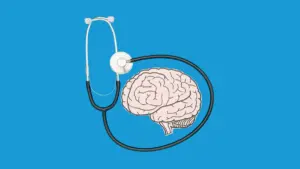What is OCD Awareness Week?
OCD Awareness Week is held every year during the second week of October. This international event is dedicated to raising awareness about obsessive-compulsive disorder (OCD), reducing stigma, and connecting individuals and families with resources and support. The week provides opportunities to highlight personal stories, share reliable information, and advocate for better understanding of this complex condition.

History and Purpose
Launched by the International OCD Foundation (IOCDF), OCD Awareness Week began as a global effort to promote education and advocacy. Partner organizations, mental health providers, and community groups now join together each year to host events and campaigns. The purpose is to make accurate information widely available while showing that recovery and management are possible with the right treatment and support.
Why Awareness Matters
OCD is often misunderstood, leading many people to feel isolated or ashamed. Awareness campaigns help replace stereotypes with facts and compassion. By fostering understanding, OCD Awareness Week encourages people to seek professional help and reminds families and communities of their critical role in supporting recovery.
Understanding Obsessive-Compulsive Disorder
Common Symptoms and Experiences
OCD is characterized by persistent, intrusive thoughts (obsessions) and repetitive behaviors or mental rituals (compulsions) performed to reduce distress. Common examples include excessive handwashing, repeated checking, or intrusive fears about harm. These symptoms can interfere with work, relationships, and daily life, but with treatment, individuals can learn strategies to manage them.
Breaking Myths and Misconceptions
One of the biggest misconceptions about OCD is that it is simply about being “neat” or “organized.” In reality, OCD is a serious mental health condition that goes far beyond preferences for cleanliness or order. Another myth is that people with OCD can “just stop” their behaviors. Awareness Week emphasizes that OCD requires professional care, not willpower alone.
Events and Campaigns During OCD Awareness Week
International and National Programs
Each year, organizations like the IOCDF and Rethink Mental Illness host webinars, panel discussions, and community challenges. These events aim to educate the public, share research updates, and create supportive spaces where individuals can connect. Storytelling campaigns are also a major component, allowing people with OCD to share their experiences and reduce stigma.
How to Get Involved Locally
People can participate through online events, local awareness activities, or by sharing personal experiences on social media with campaign hashtags. Schools, workplaces, and community centers host discussions and resource-sharing events. Even small acts—like sharing fact sheets or attending webinars—help spread awareness and build support.
Resources and Support Systems
Educational Resources and Toolkits
Trusted organizations provide free resources during OCD Awareness Week, such as downloadable guides, fact sheets, and awareness graphics. These materials can be shared at schools, workplaces, or community events to spark conversations and encourage learning.
Professional Treatment and Counseling
Evidence-based treatments for OCD include cognitive-behavioral therapy (CBT), specifically exposure and response prevention (ERP), and medication when necessary. Professional care helps individuals learn strategies to reduce compulsive behaviors and manage intrusive thoughts. Facilities like Oceanrock Health and South Coast Counseling provide access to therapy, counseling, and integrated programs that address OCD and co-occurring conditions.
Peer and Family Support
Community plays a vital role in recovery. Peer support groups, both in person and online, allow individuals to connect with others who understand their struggles. Families also strengthen recovery by learning about OCD, offering encouragement, and supporting loved ones without enabling compulsions.
How South Coast Counseling Can Help
Comprehensive OCD and Mental Health Programs
At Oceanrock Health, clients enter a safe, supportive environment where healing takes center stage. Building on that foundation, our programs address OCD and related mental health conditions with personalized treatment plans that combine evidence-based therapy, holistic approaches, and compassionate care.
Treating Co-Occurring Disorders
South Coast Counseling specializes in treating individuals who face both OCD and co-occurring challenges such as depression, anxiety, or substance use. Integrated care ensures that clients receive treatment for all aspects of their health, helping them build a stronger foundation for long-term recovery.
Taking the First Step
Reaching out for support is the most important step in managing OCD. Both Oceanrock Health and South Coast Counseling guide individuals and families through treatment, offering professional care and encouragement every step of the way.
Spreading Awareness and Finding Support
OCD Awareness Week is a reminder that knowledge and compassion can transform lives. By learning the facts, participating in events, and supporting those affected, we can reduce stigma and create pathways to treatment and recovery. Whether you are personally navigating OCD or supporting a loved one, remember that help is available and healing is possible.








